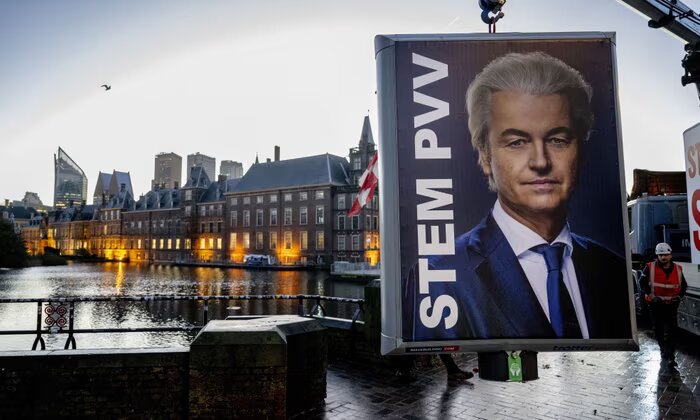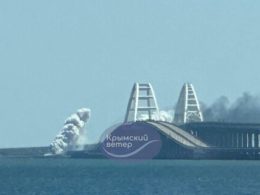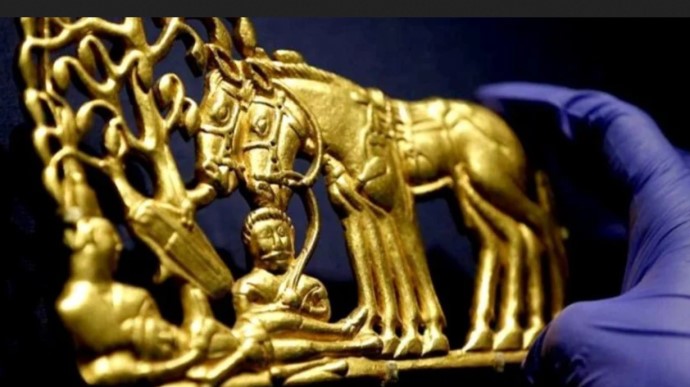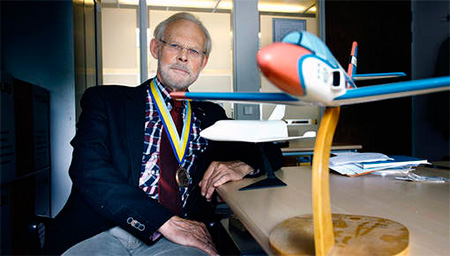On 22 November, in the Netherlands, early parliamentary elections took place, resulting in a victory for the far-right Party for Freedom (PVV) under Geert Wilders, ending over a decade of rule of the government led by Prime Minister Mark Rutte. Some commentators have already referred to this event as a “political earthquake” that will impact Europe.
The election was called after Rutte’s coalition resigned in July after failing to agree on immigration issues.
According to preliminary results, Wilders’ ultra-conservative party secured nearly 24% of votes, granting it 37 seats in the 150-member lower house. This marks their best electoral performance ever. Wilders declared to supporters, “I call on the parties… Now we will have to look for agreements with each other…The PVV can no longer be ignored.”
Preliminary, Wilders’ nearest competitor, center-left Labor Party, and Green Left could secure 25 seats, a margin of victory that is significantly greater than predicted. The People’s Party for Freedom and Democracy (VVD), led by former Prime Minister Mark Rutte, placed third with 24 seats.
However, the Dutch proportional representation system led to votes fracturing between parties, making a coalition administration more likely. Even as the largest party, the anti-immigration platform and past radical policies of the PVV may make it difficult to find willing partners.
Nonetheless, the PVV’s dramatic ascension, coupled with its stridently critical views on aiding Ukraine has raised concerns over future support for Kyiv if they join the government. As Rutte’s outgoing administration pledged €2 billion in military assistance next year alone after nearly €4 billion since the start of the Russian invasion, the policy discontinuity could have significant impacts.
Beyond opposing military aid to Ukraine, the Freedom Party has also taken foreign policy stands directly opposed to Ukraine’s key priorities. Wilders criticized NATO expansion, including offers of membership to Kyiv, as provocative towards Russia. The party and leader campaigned successfully in a 2016 referendum for halting the EU integration deal with Ukraine.
The stance on Ukraine also has ramifications for the EU, given Wilders’ alliance with Hungarian Prime Minister Viktor Orban, who has similarly obstructed sanctions and support for Kyiv. “The winds of change are here! Congratulations,” Orban said, commenting on the Dutch election results.
The national mood in the Netherlands remains broadly sympathetic to Ukraine and opposed to Russia since the downing of the airliner MH17 in 2014, but views on direct donations of heavy weaponry have become more ambiguous recently. Yulia Soldatuyk-Westerveld from the Clingendael Institute told BBC Ukraine that last spring, 72% of polled Dutch voters supported tough sanctions on Russia, while 65% wanted arms shipments to continue.
Three persons found guilty of killing 298 people in flight MH17 bombing
As long as negotiations for forming a coalition are ongoing, the Rutte government will remain in power, and the policy towards Ukraine will remain unchanged in the upcoming months.
On 24 August, in her interview with Yevropeiska Pravda, the Defense Minister of the Netherlands, Kajsa Ollongren, said the Netherlands will hand Ukraine all of its F-16 fighter jets, except for a few aircraft that will be used to train Ukrainian pilots.
However, the PVV’s manifesto indicates that the new government may oppose the transfer of F-16 fighter jets to Ukraine as well as Ukraine’s EU membership bid, in line with its past objections to the bloc’s expansion. The Dutch government may possibly continue to supply military and financial aid to Ukraine, albeit at a diminished level. Eventually, the status of military assistance is still unclear, given that the PVV is in the process of forming a coalition government—task experts predict could prove challenging—and considering that none of the other parties have taken a stance against military support for Ukraine.
Read also:
- Sanctions lawyer: Dutch firms get slap on wrist for Crimea bridge work
- Dutch PM announces more Patriot missiles, patrol boats during visit to Odesa
- Reuters: EU has approved over USD 980 million in funds for Hungary amid Ukraine’s membership tensions
- Ukraine commander Zaluzhnyi takes part in Ramstein-format meeting for first time








